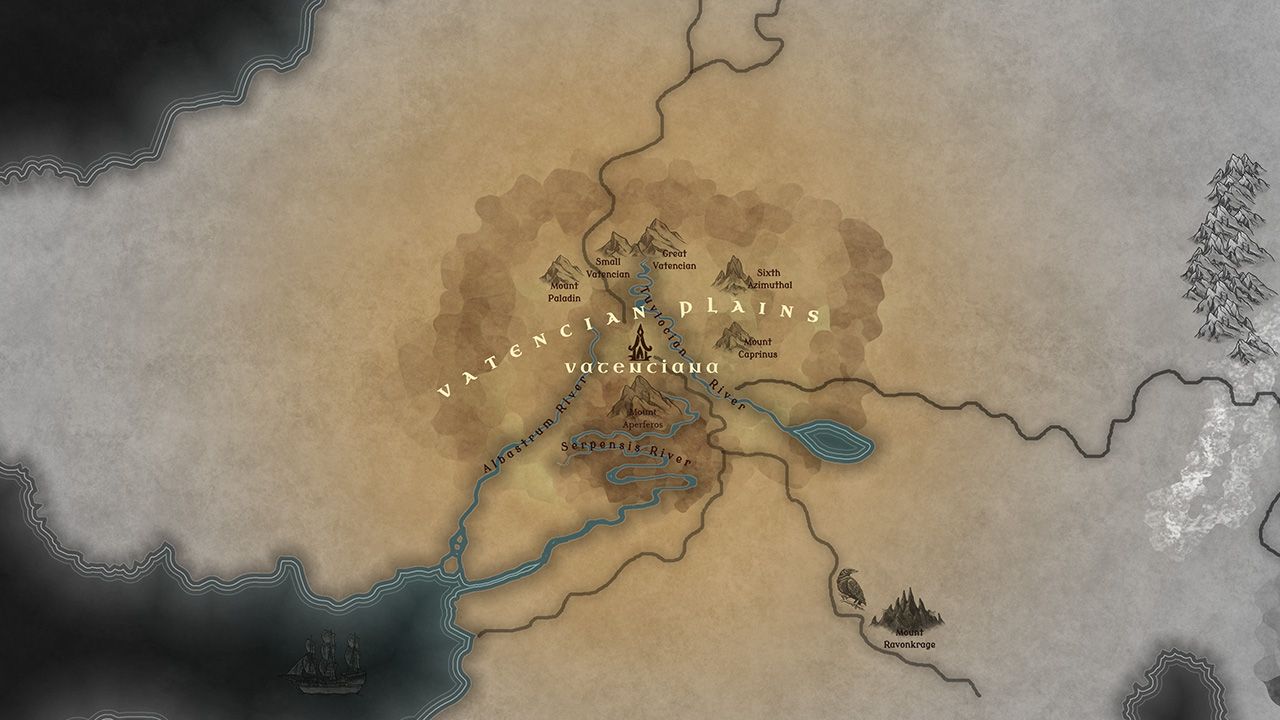
by Philipi Schneider
In the intricate process of crafting an imaginary world, a fictional realm that, for now, exists solely in the minds of us at Flesh of Gods, and which we hope will soon take root in each of your minds, what's the first step?
The world's origin? A Creation myth? A History? A Pre-History?
For us, the first step was laying down rules.
Rules And Consequences
Starting to define how this world operates. To what extent does it mirror our own world, and where does it diverge? How much freedom do characters have within this world? And what are the consequences they face?
Every fictional world needs rules and consequences to be engaging. The best example I can think of to illustrate this comes from a very specific genre of video games: open-world games.
Many of these games, often termed as sandbox, provide a plethora of tools for the player to explore and act freely, sometimes even as a psychopath. But what makes these actions so fun and rewarding is the game's punishment system. Grand Theft Auto San Andreas is a prime implementation of this principle. The game grants you access to weapons ranging from mere batons and pistols to gatling guns, bazookas, and tanks. But it also punishes you with pursuit levels. What makes the game so exhilarating is the punitive system, with the relentless police who seem to have a suicidal obsession with taking you down.
(Oh, and flying in a van while jamming to Rod Stewart)
When a writer introduces a "miraculous" solution in a story that deviates from the established internal rules, it's termed a Deus ex machina. God from the machine. Even in a tale about Gods warring with men, you can't have a Deus ex machina. The actions of the gods in the story must make sense within its context. Deus in machina.
And this explanation inherently contains the contradiction that refutes it.
The term Deus ex machina suggests that the plot is a machine. Are novels, films, or plays merely entertainment machines? Is there an optimal mathematical model for how a story can entertain, just as the Carnot engine is for physical machines? Thermodynamics assures us that perfect machines don't exist. There's always noise, dispersion, wear and tear. Why would stories be any different? And why would that even be desirable? "Perfect" stories would be formulaic, repetitive, and unoriginal. Worse still, they'd leave the Pitch Meeting guy jobless.
This is the artist's dilemma. My dilemma, in fact. I've spent this entire piece championing rules, only to end up here, defending the opposite, cornered and accused.
Because the dilemma has no clear answer. For every rule set on how not to tell stories, there's at least one example of breaking it elegantly and originally.
(Oh, by the way, here's one of cinema's most incredible Deus ex machina moments)
Consulting My Own Bible
When I began writing the short stories, I was also tasked with creating a Compendium, to be offered to subscribers, providing an overview of the world and its rules. What was intended as a reference for RPG players became a cornerstone for the development of subsequent stories. The Compendium never saw the light of day, but it became a sort of master reference guide for story creation. As I pondered the features of this peculiar universe, a world where gods and men have been at odds for millennia, many questions arose. How does this world's economy function? Its political structure? Its geography? What orders and factions exist in this world? I penned the first part of this Compendium, detailing the organization of the city that serves as the Capital of the Guild, the overarching organization that permeates all Flesh of Gods tales, and its internal divisions.
Every piece of Flesh of Gods text I wrote was done consulting this compendium. Need to write a scene where a character orders a drink at a bar? I check the Compendium to ensure the prices are internally consistent. Need to discuss intrigues within the Guild? I consult the compendium to ensure ranks and roles align.
It was a promising start, setting rules and hierarchies, establishing a status quo I can shake up in the novel's creation. One of the perks of the fantasy genre is the ability to disrupt and shake the foundations of the characters' tranquil world using magic. Hidden, potent forces, mastered by few and shrouded in secrets and mysteries.
Speaking of magic, that'll be the topic of the next post. The creation of magic.
Until next time!
